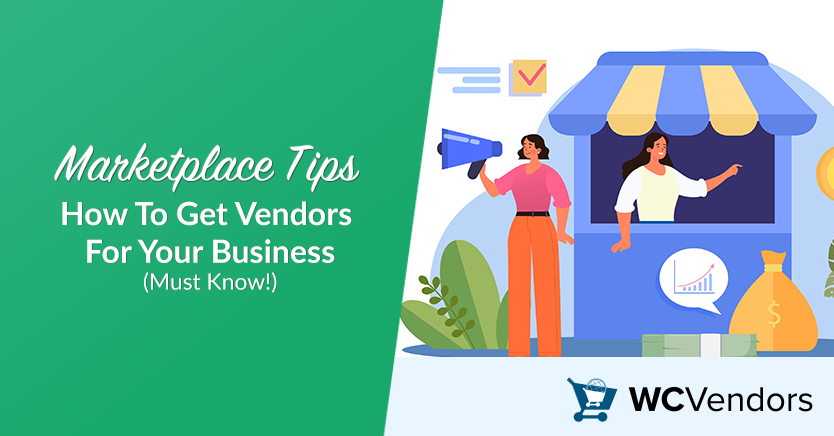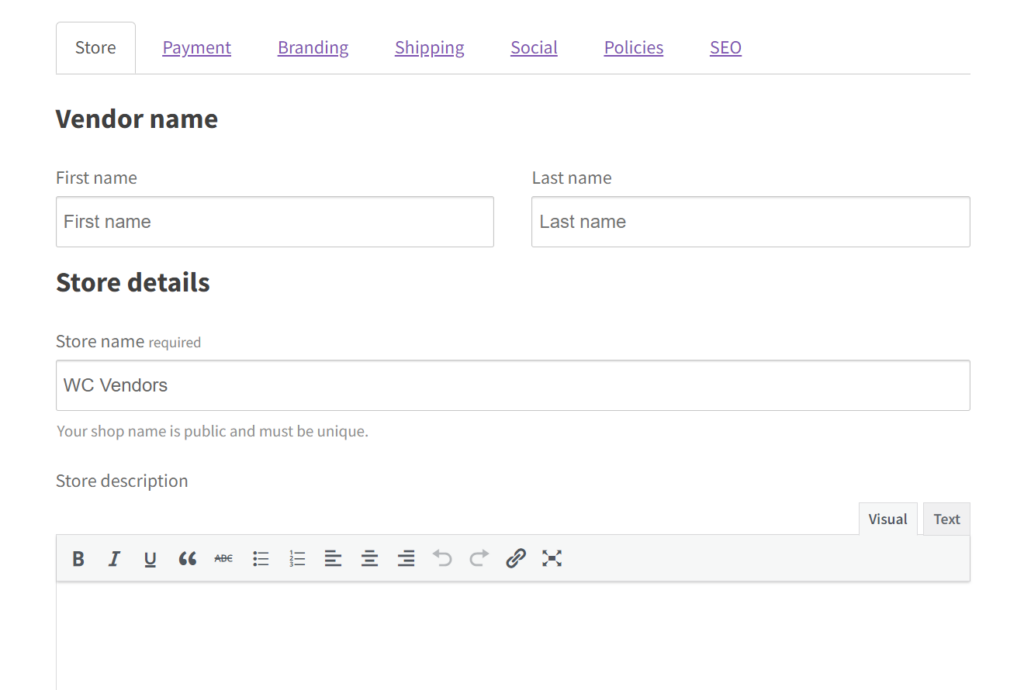
Are you planning to start an online marketplace and wondering how to get vendors for your business? Attracting the right vendors is the first step to building a successful marketplace.
Without a good mix of quality vendors, your marketplace might find it hard to attract customers. So, it’s important to know the best ways to bring vendors to your platform.
By following these simple tips, you can attract vendors and create a thriving marketplace. Let’s get started!
1. Defining Your Marketplace Niche
Defining your marketplace niche is important for attracting the right vendors and meeting market needs. First, think about your interests and expertise. For example, if you care about sustainability, consider focusing on eco-friendly products. Then, check if there’s demand by using tools like Google Trends. Look at your competitors to see what’s missing, like a wide range of certified organic items.
Next, clearly define your target audience. Think about their age, income, and lifestyle. For eco-friendly products, you might target environmentally conscious people aged 25-45. Lastly, develop a Unique Selling Proposition (USP) to stand out. This could be offering only certified eco-friendly products.
By clearly defining your niche and learning how to get vendors for your business, you can attract the right vendors and tailor your marketplace effectively.
Next, let’s look at how to get vendors for your business by creating a strong value proposition. Read on!
2. Developing A Strong Value Proposition

Developing a strong value proposition is crucial. Vendors need to know what’s in it for them. Here are some simple ways to do it:
Highlight key benefits
- First, explain how your platform can help vendors find new customers. Then, show how joining your marketplace can increase their sales. For instance, talk about benefits like more visibility, access to the right audience, and easier sales processes.
Showcase unique features
- Mention any special features your marketplace offers. This could be a user-friendly vendor dashboard, lower commission rates, or unique marketing tools. Also explain how these features make it simpler for vendors to manage their business and sell more.
Provide evidence of success
- Share some success stories or data showing how other vendors have thrived on your platform. For example, “95% of our vendors see a 20% increase in sales within the first 3 months.” Use simple graphs or charts to make this information easy to understand.
Use vendor testimonials
- Add testimonials from current vendors who are happy with your platform. Moreover, highlight their positive experiences and how your marketplace has helped their business grow.
Communicate clearly and concisely
- Make sure your value proposition is clear and easy to understand. Use simple words and focus on the main benefits so vendors can quickly see the value.
By following these steps, you can create a value proposition that attracts vendors who want to grow their businesses through your marketplace. Now, let’s dive into how to get vendors for your business by using social media and online communities.
Read on!
3. Leveraging Social Media And Online Communities
Using social media and online communities is a powerful way to attract vendors to your business. Platforms like Facebook, Instagram, LinkedIn, and Twitter can help you connect with potential vendors. Here’s how:

- Create engaging content – Post success stories of current vendors on Instagram, showcasing how your marketplace increased their sales. Use photos, quotes, and short videos to make the content more interesting.
- Host webinars and live sessions – Organize a live Q&A session on Facebook where interested vendors can ask questions about your marketplace. Invite successful vendors to share their experiences.
- Join online communities – Participate in LinkedIn groups and industry-specific forums. Share valuable insights and information about your platform, positioning yourself as an expert.
- Run targeted ads – Use Facebook Ads to create campaigns aimed at businesses likely to benefit from your platform. Highlight key benefits like increased visibility and sales growth.
- Offer incentives – Create a referral program and promote it on your social media channels. Offer current vendors a discount or bonus for referring new vendors.
- Share educational content – Share blog posts, infographics, and videos on LinkedIn explaining how to succeed as a vendor on your platform. This educates and attracts vendors looking for reliable platforms.
By using these tactics, you can effectively leverage social media and online communities to attract potential vendors to your marketplace. Pretty cool, right?
Next, let’s explore how to get vendors for your business by offering competitive commission rates. Keep reading!
4. Offering Competitive Commission Rates
Offering competitive commission rates can help bring vendors to your business. Here’s how to do it in a simple and effective way:
Flexible commission structures
- Different vendors have different needs. So, offer various commission options, like lower rates for new vendors and special rates for high-volume sellers.
- Example: For new vendors, you might offer a 5% commission rate to help them start. For those who sell a lot, you could provide a reduced rate as a reward.
Clear commission calculations
- Make sure vendors understand how their commissions are calculated. This builds trust.
- Sample Calculation: Imagine a vendor sells a product for $100. With a commission rate of 10%, the calculation would be: $100 (product price) × 10% (commission rate) = $10 commission fee. Consequently, the vendor earns $90 after the commission.
Offer incentives
- Give vendors reasons to increase their sales. Offer lower commission rates for those who hit certain sales targets.
- Example: If a vendor makes over $10,000 in sales in a month, offer them a 5% commission rate instead of 10%.
Use WC Vendors for easy management
- WC Vendors lets you set different commission rates for each product, category, or vendor. This flexibility helps meet the unique needs of all your vendors.
By offering competitive and easy-to-understand commission rates, you make your marketplace more attractive and trustworthy, encouraging vendors to join and stay.
Now that we’ve simplified how to get vendors for your business with affordable rates, let’s explore how our user-friendly vendor platform can further enhance your experience. Stay tuned and read on!
5. Building A User-Friendly Vendor Platform
Building a user-friendly vendor platform is key to attracting vendors to your marketplace, a crucial step in understanding how to get vendors for your business. When your platform is easy to use, with simple navigation and clear instructions, vendors are more likely to join and stay. Can you believe how effective this can be?
First, make the registration process quick and simple. Vendors should be able to sign up easily, without filling out too many forms. After registration, welcome them with a clear dashboard that shows all important information like sales numbers, orders, and account settings. This helps vendors see everything they need at a glance.
Next, make it easy for vendors to list their products. They should be able to upload photos, write descriptions, and set prices without any trouble. Clear instructions can guide them through each step. For those with many products, a bulk upload feature can save a lot of time.
Good customer support is also very important. Offer different ways to get help, like live chat, email, and a FAQ section. This ensures vendors can get answers quickly, which builds trust and keeps them happy.
WC Vendors can make all these tasks easier. This WordPress plugin offers a simple and clear interface for both marketplace owners and vendors. It helps manage accounts, product listings, and commissions easily. By using WC Vendors, you ensure your platform is simple to navigate and manage, making vendors more satisfied and likely to stay.
Focus on these simple steps to create a platform that vendors will love, helping your marketplace grow and succeed. Now, let’s look at how simple it is to create attractive onboarding packages that really draw them in.
Ready to see how? Read on further!
6. Creating Attractive Onboarding Packages
Creating attractive onboarding packages makes vendors feel welcome and sets them up for success. By offering useful resources, you can make the onboarding process smooth and enjoyable.

Here are some key elements to include:
- Step-by-step guides – Offer clear, written instructions that walk vendors through each stage, from signing up to adding their first product.
- Video tutorials – Produce short, easy-to-follow videos that show vendors how to navigate and use your platform effectively.
- Dedicated customer support – Provide personalized help through live chat, email, or phone to answer any questions or solve any issues quickly.
By including these elements, you ensure that vendors have a positive start, increasing their likelihood to join and stay.
But what keeps those relationships strong? Up next, we’ll look into maintaining open communication channels – it’s simpler than you think and key to lasting partnerships. Let’s explore this together!
7. Maintaining Open Communication Channels
Open communication is key to a successful marketplace and essential in learning how to get vendors for your business. First, regularly talk with your vendors to learn about their needs and address any concerns quickly. Use email support, phone support, and other channels like LiveChat or forums to make it easy for vendors to reach out. This way, you can gather useful feedback to keep improving your platform.
Also, listening to vendor feedback helps you make better decisions. This ongoing improvement process not only solves current issues but also prepares for future needs, making your platform more flexible and strong.
Moreover, open dialogue builds trust and loyalty. When vendors feel heard and appreciated, they stay committed to your platform. This sense of community leads to stronger, longer-lasting relationships, which are crucial for your marketplace’s growth.
In short, by keeping communication channels open, you ensure that both you and your vendors are working together towards common goals. This results in a more lively and successful marketplace, which is a fundamental part of how to get vendors for your business.
Conclusion
Building a successful marketplace involves more than just creating a platform; it requires a strategic approach on how to get vendors for your business.
The key to success lies in understanding your vendors’ needs, offering compelling reasons for them to join, and fostering ongoing relationships.
Here’s a recap of the essential steps to help you achieve this:
- Define marketplace niche
- Compelling value propositions
- Engaging on social media
- Offering fair commissions
- Building a user-friendly platform
- Providing comprehensive onboarding
- Maintaining open communication
When using a platform like WC Vendors, you can further enhance this experience. WC Vendors offers features such as supported WooCommerce gateways, easy commission tracking, and automated payouts, making it simpler and more appealing for vendors to join.
By implementing these tips, you’ll be well on your way to building a thriving online marketplace.
Do you have any questions about what we discussed in this article? Or maybe you have other tips to share? We’d love to hear from you! Let us know in the comments!


